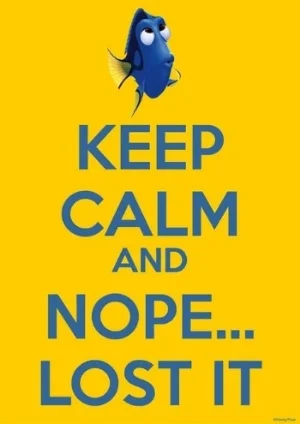yes, but why?
Motivation is a scarce and elusive thing. I fancy myself a rather self-motivated lassie and never needed my parents’ goading to get on with studying as a child. I still can’t quite tell if I was more driven by the reward of gloating rights or the fear of shame, but nevertheless, I never really had trouble aiming for a goal. Suddenly though, cast out of the regimented, point-value life, motivation was much harder to come by. I knew what I had to do: get a job and do well, and I fulfilled this obligation soon after graduation, but before long work felt like, well, work. But not in a good way. It felt like a chore, to “get over with,” to struggle through in order to reach and merit the weekend. Little inefficiencies and mishaps started to take a toll, and I no longer felt the urge to go the extra mile every day.
My very wise boyfriend pointed out that unlike school where your performance was reviewed and awarded every couple of weeks or months, in the real world, the interval is all of a sudden stretched into years. The reward, the sense of achievement sometimes won’t come even until after you’ve left a company. I remember the oddity that was working at magazines with a 5-month lead-time so that some people who’ve left will still find their names on the masthead months after. Or even my engineer boyfriend who tinkers with cars—cars that won’t reach the showroom until years after the fact. So how does one derive motivation when working on something so drawn-out? How does one wake up in the morning with relative excitement to work on a tiny fraction of a part of an idea that wouldn’t come into fruition till much later? We all know that Pinterest quote “Never stop doing your best just because someone doesn’t give you credit,” but simply how does one find daily energy to do that?
The answer is, to ask “why.” Somewhere in the shuffle that is work-life, I've forgotten to ask why. In Simon Sinek’s TED Talk, he explains that the most successful and inspirational people and companies always start with why. Everyone knows what they do, he says, many know how they do it, but only great leaders know why they do it. Most people function by selling the end result, the “what” before figuring out the “why.” For example, releasing a shiny new laptop and telling people to buy it. But great companies act from the inside out, so that all their successive actions are grounded from that point of conviction. Apple, he notes, projects their fundamental beliefs, namely their commitment to perfection and innovation, and then tell people to buy their projects.
In the same way, I’ve found that in our lives, action for the sake of action is not sustainable. Without purpose, every morning you’ll find yourself mustering every strand of willpower to get out of bed. Without motivation, even the hardest workers will find themselves running out of steam and the most challenging tasks will cease to be inspiring if they have no purpose with which to propel them, never mind minuscule duties of our every day lives.
So perhaps the response to this relentless question is to ask who.
My boyfriend’s super-smart-and-driven colleague, who’s only in his twenties just beat out his much older colleagues for the company’s equivalent of Employee of the Month and earned himself a hefty raise. His work, though riveting I’m sure, is not without its inconveniences. Nevertheless you rarely see him frown, complain or gripe. “Why?” Because he locked his sight on the company’s Vice President and said “I’m want to be him in 10 years, and doing this shitty thing right now is going to get me there.”
It’s been a while since I've been asked about my icon. I’m not confident I ever really had one, I mean sure I look up to my mother’s success and this powerful woman or that stylish beauty, but they don’t amount to a muse. This muse can be an existing person or even you in 10 years but he or she can’t be a fleeting image of success, she needs to be so alive that you could trace her steps, trace them all the way back to you now so you can say, “yes this may be a small step but it will lead me to you.” The muse will inform your every decision, drive your every action, be so compelling that she’ll help you make sense of the nitty-gritty as well as the abstract, and hopefully she’ll put to rest the ever-itching question of why.




















